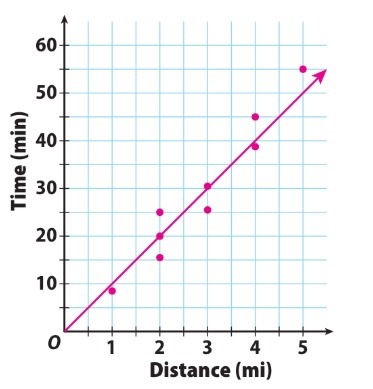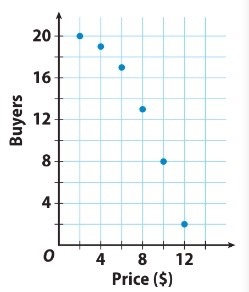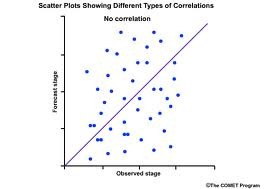CHAPTER 4: RESEARCH METHODS
0.0(0)
0.0(0)
Card Sorting
1/114
Earn XP
Description and Tags
Study Analytics
Name | Mastery | Learn | Test | Matching | Spaced |
|---|
No study sessions yet.
115 Terms
1
New cards
Theory
- an idea/ thought that intends on explaining something
2
New cards
Variable
- a factor that can change or is able to change in an experiment/ investigation
3
New cards
Independent variable
- variable that is manipulated/ controlled by the experimenter
4
New cards
Dependent variable
- measured outcome (behavior) of this change
5
New cards
Hypothesis
A testable prediction, often implied by a theory
6
New cards
Three things a hypothesis needs to contain
- Both conditions of the independent variable and dependent variable
- An exact prediction of the study's outcome
- Relationship or difference between the two varaiables
- An exact prediction of the study's outcome
- Relationship or difference between the two varaiables
7
New cards
Operationalizing [hypotheses]
- when variables in an experiment are defined in order to manipulate the IV and the DV
8
New cards
Alternative hypothesis
- states the predicted difference between the start of the investigation and the result (the predicted outcome)
9
New cards
Null hypothesis
- states that there is no difference between the start of the investigation and the result (there is no outcome)
10
New cards
Non-directional hypothesis
- only the fact that there is a difference between variables is stated
11
New cards
Directional hypothesis
- the difference in outcome between the two variables is stated
12
New cards
Quantitive Data
- a fixed set of responses
13
New cards
Strength of Quantitative Data
- easy to analyse and draw conclusions
- less room for interpretation: reduces the chance of bias
- less room for interpretation: reduces the chance of bias
14
New cards
Weakness of Quantitative Data
- lacks depth, not reflecting real-world complexity
- does not reflect how complex the real world is (less validity)
- does not reflect how complex the real world is (less validity)
15
New cards
Qualitative Data
- starts out in a form that cannot be initially counted (such as paragraphs and pictures)
16
New cards
Strength of Qualitative Data
- more depth and detail
- seen to have more validity (the respondant is free to fully express their thoughts and feelings)
- seen to have more validity (the respondant is free to fully express their thoughts and feelings)
17
New cards
Weakness of Qualitative Data
- difficult to analyse and summarize
- conclusions are rawn depending on the researcher's own opinions: open to bias
- conclusions are rawn depending on the researcher's own opinions: open to bias
18
New cards
Primary Data
- collected first hand by the researchers, so the data matches the aims of the study
19
New cards
Strength of Primary Data
- suits the aims of the research, so more useful
- authentic (it comes first hand from the participants)
- authentic (it comes first hand from the participants)
20
New cards
Weakness of Primary Data
- it takes time and effort to collect, and is costly (as the researcher has to design the procedure, test it, and find participants to use)
21
New cards
Secondary Data
- analyzed and collected by another researcher (therefore, it already exists)
22
New cards
Strength of Secondary Data
- easy to access and the data is already checked (research involves very little effort and much less expense)
23
New cards
Weakness of Secondary Data
- it may not fit what the researcher is investigating
- it might be out of date, incomplete, or of poor quality
- it might be out of date, incomplete, or of poor quality
24
New cards
Laboratory experiment
- an experiment that is conducted in a controlled environment
25
New cards
Strengths of a labratory experiment
- EVs can be controlled, so cause and effect is established
- use of standardized procedures makes it easier for the procedure to be tested again which can confirm validity
- use of standardized procedures makes it easier for the procedure to be tested again which can confirm validity
26
New cards
Weaknesses of a laboratory experiment
- behavior in lab is less 'normal', which makes it difficult to generalize (reducing validity)
- participants may change their behavior because they are aware of being watched
- participants may change their behavior because they are aware of being watched
27
New cards
Field experiment
- an experiment that is conducted in a natural setting where the experimenter manipulates the independent variable
28
New cards
Strengths of a field experiment
- more realistic than lab experiments as it is conducted in a natural environment (high validity)
- can use standardized procedures which allows for some control
- can use standardized procedures which allows for some control
29
New cards
Weaknesses of a field experiment
- may lose control of EVs so difficult to show cause and effort
- ethical issues because participants are not aware of the fact that they are being studied
- ethical issues because participants are not aware of the fact that they are being studied
30
New cards
Natural experiment
- an experiment that is conducted in a natural or laboratory setting where the experimenter does not manipulate the independent variable because it would change anyways
31
New cards
Strengths of a natural experiment
- has high validity because it involves real-world variables that normally take place in a natural setting
- when teh DV is being measured in a laboratory, there can be a high level of control over EVs
- when teh DV is being measured in a laboratory, there can be a high level of control over EVs
32
New cards
Weaknesses of a natural experiment
- few opportunities to do this kind of research as behaviors may be rare
- There may be EVs because the researcher cannot randomly allocate participants to IV conditions
- There may be EVs because the researcher cannot randomly allocate participants to IV conditions
33
New cards
Extraneous variables
- any variable apart from the independent variable that can affect the dependent variable
34
New cards
Reliability
- the consistency of an experiment/ a measurement
35
New cards
Validity
- whether a result is "true" or not/ is it accurate
36
New cards
Ecological validity
- how true/ accurate something is in terms of how it applies to the real world
37
New cards
Demand characteristics
- If the participants know the aims of the investigation, they may change their behavior - for example, they might want to help the researcher achieve their aims. This means that their behavior is not realistic.
38
New cards
Independent Measures Design
- participants are allocated to different groups where each group represents one experimental condition
39
New cards
Strength of an independent measures design
- order effects are not a problem because participants only do the experiment once (no practice effect)
40
New cards
Weakness of an independent measures design
- different participants in each group
- participant variables can act as EVs (reduces validity)
- participant variables can act as EVs (reduces validity)
41
New cards
Matched Pairs Design
- pairs of participants are matched in terms of the variable relevant to the study, such as age or IQ. One member of each pair takes part in condition A of the experiment and the other takes part in condition B
42
New cards
Strengths of a matched pairs design
- no order effects (because they are only tested once)
- fewer participant variables
- fewer participant variables
43
New cards
Weakness of a matched pairs design
- takes time to match participants
- doesn't control all participant variables
- doesn't control all participant variables
44
New cards
Repeated Measures Design
- when all the participants take part in all conditions of the experiment
45
New cards
Strengths of a repeated measures design
- no participant variables
- fewer participants needed, so less expensive
- fewer participants needed, so less expensive
46
New cards
Weakness of a repeated measures design
- order effects reduce validity, e.g. practice effect
47
New cards
Counterbalancing
- where half of the total number of participants will take part in Condition A first, followed by Condition B and the pther half of participants will take part in reverse order (Condition B and then Condition A)
48
New cards
Ways of dealing with participant variables
- allocation to conditions: using chance or systematic method to allocate participants to conditions
- random allocation: ensures that each participant has an equal chance of being in one group as any other
- random allocation: ensures that each participant has an equal chance of being in one group as any other
49
New cards
Random Sampling
- each person has an equal chance of selection
E.g. numbers of a target population in a hat/ random generator
E.g. numbers of a target population in a hat/ random generator
50
New cards
Strength of random sampling
- no bias as everyone has an equal chance of selection
51
New cards
Weakness of random sampling
- takes time as need a list of all the members of a target population
52
New cards
Oppurtunity Sampling
- the researcher selects people who happen to be there at that time
53
New cards
Strength of opputunity sampling
- quick and therefore cheap because participants there already
54
New cards
Weakness of oppurtunity sampling
- only represents the population from which it was drawn
55
New cards
Systematic Sampling
- a numerical formula is used, such as selecting every 50th name from the phonebook
56
New cards
Strength of systematic sampling
- avoids researcher bias (the researcher has no say over who is selected)
57
New cards
Weakness of systematic sampling
- may end up with an unrepresentative sample (a sample of low validity)
58
New cards
Stratisfied Sampling
- participants are selected from different subgroups in the target population in proportion to the subgroup's frequency in that population
59
New cards
Strength of stratisfied sampling
- most representative method
60
New cards
Weakness of stratisfied sampling
- very time-consuming to sort sub-groups
- the decision abt which subgroups to use may be biased (which reduces the representiveness)
- the decision abt which subgroups to use may be biased (which reduces the representiveness)
61
New cards
Correlations
- mathematical technique used to investigate the relationship between two co-variables
62
New cards
Positive Correlation
- when one co-variable increases, the other also increases (and vise versa)

63
New cards
Negative Correlation
- when one co-variable increases and the other decreases

64
New cards
No Correlation
- when there is no relationship between co-variables

65
New cards
Strength of correlations
- good starting point for research
- they can be used to investigate more complex relationships (curvilinear relationships)
- they can be used to investigate more complex relationships (curvilinear relationships)
66
New cards
Weakness of correlations
- they can tell us that two co-variables are related but don't tell us how they are related
- intervening variables may be overlooked
- intervening variables may be overlooked
67
New cards
Observations
- a research method where a researcher observes and recors a participant's behavior to see how they will respond in a given situation
68
New cards
Naturalistic Observation
- behavior is recorded the place where it will normally occur and nothing is changed in the environment
69
New cards
Controlled Observation
- the researcher controls some aspects of the situaion/ environment
70
New cards
Covert Observation
- when participants are not aware that their behavior is being recorded
71
New cards
Overt Observation
- participants are told in advance that their behavior will be watched and recorded
72
New cards
Participant Observation
- where the researcher takes part in the event being observed
73
New cards
Non-participant Observation
- the researcher remains seperate from the people they are studying
74
New cards
Strength of Observations
- provides better indication of behavior than questionniares/ interviews ---> high validity
- look at real-life behavior
- look at real-life behavior
75
New cards
Weakness of Observations
- Ethical issues
- observers have expectations of what the result could be - this could influence what they see/hear
- observers have expectations of what the result could be - this could influence what they see/hear
76
New cards
Interobserver reliabiltiy
- the extent to which there is an agreement between two or more observers involved in an observation of behavior
77
New cards
Catergories of behavior
- when a target behavior is broken down into units that can be observed and recorded
78
New cards
Ethical issue
- when there is a conflict between the rights of participants to be safe and the goals of research to produce valuable data
79
New cards
Informed Consent
- where participants must be given comprehensive information about the goal and nature of the research and their goal in it for them to make an informed decision about whether to participate
80
New cards
Deception
- where the participant is not told the true aims of/ given false information about the study and cannot truly give their informed consent
- mild deception can be excused if the benefits of the results outweigh the costs of the deception
- mild deception can be excused if the benefits of the results outweigh the costs of the deception
81
New cards
Protection from harm
- where participants should not be placed at risk, and their physical and psychological safety should be protected at all costs
82
New cards
Privacy
- where people expect to be able to control information about themselves
83
New cards
Confidentiality
- when a person's privacy has been invaded, their identity should be protected
84
New cards
Dealing with Informed Consent
- (before the study) a consent form that explains what is involved in the study and what the aims of the study are
- they should be asked to sign a consent form (participants under 16 will have their guardians sign this form)
- they should be asked to sign a consent form (participants under 16 will have their guardians sign this form)
85
New cards
Dealing with Deception and Protection from Harm
- (after the study) researchers should produce a letter for participants explaining the true aims of the experiment, that there were other participants involved, the fact that they have the right to withhold any data, and that all of their behavior was normal (debriefing)
- the participants should also know that if they feel uncomfortable at any point during the study, the investigation will be halted
- the participants should also know that if they feel uncomfortable at any point during the study, the investigation will be halted
86
New cards
Dealing with privacy and confidentiality
- all participants should remain anonymous
- psychologists should not share data with other researchers unless cleared by the participants in advance
- participants should be reminded that their data will be protected and remain confidential
- psychologists should not share data with other researchers unless cleared by the participants in advance
- participants should be reminded that their data will be protected and remain confidential
87
New cards
Structured Interview
- where the interviewer reads out a list of prepared questions to the interviewee
88
New cards
Unstructured Interview
- more like a conversation
- the interviewer starts off with a general aim and lets the interviewee's answers guide the subsequent questions
- the interviewer starts off with a general aim and lets the interviewee's answers guide the subsequent questions
89
New cards
Semi-structured Interview
- where a number of questions are already prepared in advance but the interviewer will ask follow up questions at certain points
90
New cards
Strength of interviews
- they produce extensive information
- they are the only way to obtain information from people who can't write or find it difficult to express their feelings on paper
- they are the only way to obtain information from people who can't write or find it difficult to express their feelings on paper
91
New cards
Weakness of interviews
- data might be difficult to analyse
- people may feel less comfortable about revealing personal information
- people may feel less comfortable about revealing personal information
92
New cards
Questionnaire
- a set of written questions used to find out a person's thoughts or attitudes on a particular topic
93
New cards
Open Question
- does not have a fixed range of possible answers
94
New cards
Closed Question
- has a fixed range of answers
95
New cards
Strength of a questionnaire
- gather information from lots of people relatively quickly
- produce data that is often easier to analyse than interviews
- produce data that is often easier to analyse than interviews
96
New cards
Weakness of questionnaires
- respondants might not always answer truthfully
- questions might be unnclear or might be leading questions
- questions might be unnclear or might be leading questions
97
New cards
Case Study
- an in-depth investigation of something which could be a single individual, a group, an event, or an institution
98
New cards
Strength of a case study
- researchers are often more open-minded when conducting a case study
- they are the best way of studying unusual behavior
- they are the best way of studying unusual behavior
99
New cards
Weakness of a case study
- often concern unique people or events
- subjective: based on the researcher's own reading and understanding of the case
- subjective: based on the researcher's own reading and understanding of the case
100
New cards
Mean
- mathematical average of scores